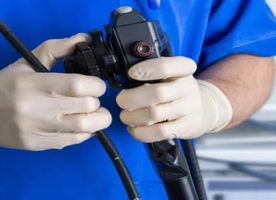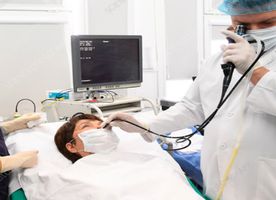Esophageal Cancer Surgery in Germany
Search and Compare the Best Clinics and Doctors at the Lowest Prices for Esophageal Cancer Surgery in Germany













































































































































No Time?
Tell us what you're looking for and we'll reach out to the top clinics all at once
What does a Esophageal Cancer Surgery Procedure Involve?
Esophageal cancer surgery is performed under general anesthesia. The surgery is done using the standard open technique in which your surgeon makes one large incision in the chest or abdomen, or minimally invasive where your surgeon makes several small incisions. During the surgery, your surgeon will try to remove the tumor and some healthy tissue that surrounds it or removes some or most of the esophagus (esophagectomy). In some cases, a small upper portion of your stomach is removed as well (esophagogastrectomy).
How Long Should I Stay in Germany for a Esophageal Cancer Surgery Procedure?
You will be staying 7 to 10 days in the hospital following the surgery, but plan to stay in Germany for 10 to 14 more days after you are discharged from the hospital. During your stay in the country, you will be under a close monitor of your surgeon. Stitches are usually removed within 14 days.
What's the Recovery Time for Esophageal Cancer Surgery Procedures in Germany?
Esophageal cancer surgery is not a simple procedure, therefore, it may require long recovery time. You should not do any strenuous activity (including intense exercise and heavy lifting) for about 8 weeks after the surgery and you will need tube feeding (enteral nutrition) for 4 to 6 weeks to ensure adequate nutrition. Talk to your doctor about your recovery timeline, including when you can return to work and resume your daily activities.
What sort of Aftercare is Required for Esophageal Cancer Surgery Procedures in Germany?
Since your stomach size is likely reduced after the surgery, you need to adjust your diet and eat more frequently in smaller quantities. Your doctor may recommend follow-up care to prevent complications, including lung therapy, nutritional assessments, pain management, and psychosocial care. You also need to attend regular follow-up checkups to make sure the tumor has not returned and there are no new tumor growths.
What's the Success Rate of Esophageal Cancer Surgery Procedures in Germany?
Surgery for esophageal cancer is known to be highly successful. Patients who undergo surgery are more likely to survive long term than those who did not. However, like all serious operations, esophageal cancer surgery has some side effects and risks, including lung complications, voice changes, infection, bleeding, cough, leakage from the surgical connection of the stomach and the esophagus, acid or bile reflux, dysphagia, and reaction to anesthesia.
Are there Alternatives to Esophageal Cancer Surgery Procedures in Germany?
In some cases, your doctor may recommend chemotherapy (to kill cancer cells using drugs) or radiation therapy (to kill cancer cells using high-powered X-ray beams) along with or instead of surgery. Make sure to discuss with your doctor, the best option for you as well as the risk and benefit of each procedure.
This information has been accurately sourced and verified by a medical professional for its accuracy, however, we strongly recommend you to consult with your doctor before pursuing medical procedures overseas.






